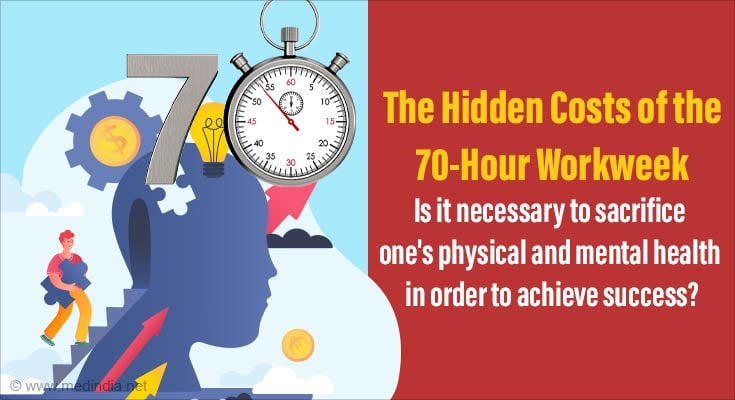People suffering from sleep deprivation often underestimate their performance deficits, believing they are functioning better than they actually are, which can have serious implications in critical situations such as driving or providing patient care
Decline in Neurocognitive Functions:
Sleep deprivation leads to a wide range of cognitive declines, including reduced alertness, involuntary sleep episodes, and increased pressure for the brain to fall asleep
Increased risk of injuries:
Overworking can lead to a lack of focus, which increases the likelihood of accidents and injuries in the workplace.Ten-hour shifts increased risk by 13%, and 12-hour shifts raised risk by 28% when compared to 8-hour shifts
Dembe, Erickson, Delbos, and Banks (2005) noted a potential “dose response” in which worker injury rates rose in tandem with weekly work hours. According to Folkard and Lombardi, the greatest danger is associated with long shifts that take place at night. This is especially concerning for jobs that require precision and attention to detail (2✔ ✔Trusted Source
Negative Impacts of Shiftwork and Long Work Hours
Go to source
).
Advertisement
Mental Health Consequences of a 70 Hour Work Week
A 70-hour work week not only takes a toll on physical health but also on mental well-being. Some of the mental health consequences associated with excessive work hours include:
-
Stress and anxiety:
The constant pressure of work and tight deadlines can cause elevated stress and anxiety levels, potentially leading to burnout or more serious mental health conditions
-
Depression:
Prolonged stress and fatigue can increase the risk of depression, as individuals may struggle to find a healthy work-life balance and experience a sense of hopelessness
-
Neglected family and social life:
Long hours at the office can lead to neglecting important relationships, causing emotional distance and potential conflicts with loved ones
-
Decreased social support:
When work becomes all-consuming, individuals may have less time for socializing and building a support network, which is crucial for emotional well-being. A demanding work schedule can lead to social isolation and feelings of loneliness, further exacerbating mental health issues (3✔ ✔Trusted Source
Incidence of overwork-related mental disorders and suicide in Japan
Go to source
)
Stress and anxiety:
The constant pressure of work and tight deadlines can cause elevated stress and anxiety levels, potentially leading to burnout or more serious mental health conditions
Depression:
Prolonged stress and fatigue can increase the risk of depression, as individuals may struggle to find a healthy work-life balance and experience a sense of hopelessness
Neglected family and social life:
Long hours at the office can lead to neglecting important relationships, causing emotional distance and potential conflicts with loved ones
Decreased social support:
When work becomes all-consuming, individuals may have less time for socializing and building a support network, which is crucial for emotional well-being. A demanding work schedule can lead to social isolation and feelings of loneliness, further exacerbating mental health issues (3✔ ✔Trusted Source
Incidence of overwork-related mental disorders and suicide in Japan
Go to source
)
Follow this to Effectively Manage Work-related Stress
-
Establish Clear Boundaries:
Define your expectations and daily goals. Decide when your workday ends and stick to it, regardless of your progress or location
-
Create a Consistent Routine:
Plan enjoyable activities for after work, such as attending an exercise class, reading a book, or practicing yoga. This can provide a positive transition from work to personal time
-
Release Guilt:
Don’t feel guilty about clocking out when others are still working or online. Dr. Borland emphasizes the importance of self-care, as it is essential to be the best partner, parent, sibling, or child
-
Challenge the “Overwork” Mindset:
Society often praises excessive work hours on minimal sleep as an achievement. Let’s challenge this mindset and “Choose Ourselves” instead (4✔ ✔Trusted Source
5 Side Effects of Working Too MuchGo to source
)
The International Labour Organization shows that working more than 55 hours a week can have negative effects on your health.While hard work and dedication are undoubtedly commendable, a 70-hour work week comes with significant risks to physical, mental, and social well-being.
It’s important to strike a balance between work and personal life, as neglecting the latter can have serious consequences. Employers and employees alike should be aware of these risks and prioritize the health and happiness of their workforce.
Achieving success should not come at the expense of one’s well-being, and it’s essential to recognize that there is more to life than just work.
References :
- WHO: Working long hours is a ‘serious health hazard’ – (https://www.weforum.org/agenda/2021/05/new-study-shows-that-longer-working-hours-can-lead-to-serious-health-problems/)
- Negative Impacts of Shiftwork and Long Work Hours – (https://www.ncbi.nlm.nih.gov/pmc/articles/PMC4629843/)
- Incidence of overwork-related mental disorders and suicide in Japan – (https://pubmed.ncbi.nlm.nih.gov/29897506/)
- 5 Side Effects of Working Too Much – (https://health.clevelandclinic.org/effects-of-working-too-much/)
Source: Medindia



